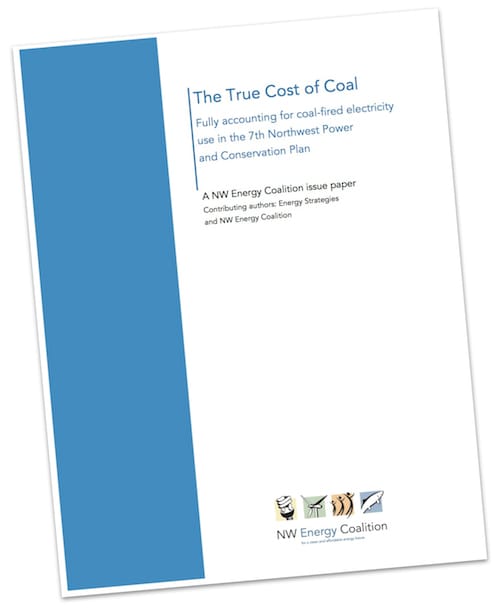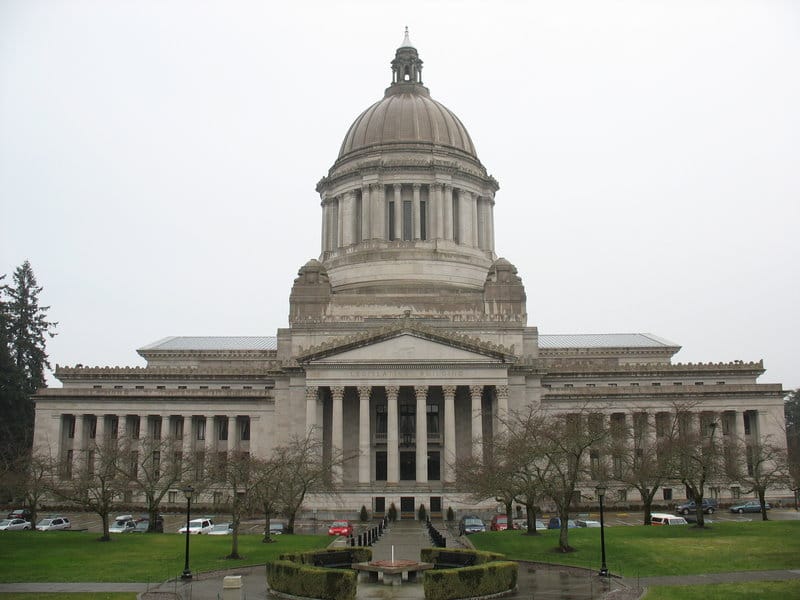Newsletter
Coalition offers initial ideas to strengthen 7th Plan’s energy efficiency provisions
Early results from the Northwest Power and Conservation Council’s 7th Power Plan analysis once again illustrate the tremendous value energy efficiency brings to our region. Some 1,300–1,450 average megawatts of cost-effective energy efficiency should be available over the next five years.To assure the cleanest and most affordable 7th Plan, the NW Energy Coalition recently submitted an initial set of energy efficiency action recommendations to the Council.
Renewable Northwest's Megan Decker new chair of NW Energy Coalition board
Megan Decker, chief counsel to Portland-based Renewable Northwest, has been elected chair of the NW Energy Coalition. Decker previously served as vice chair and was instrumental in leading the Coalition’s organizational transition over the past year. Decker succeeds Jeff Bissonnette of the Citizens’ Utility Board of Oregon as chair.
Coalition analysis: 7th Power Plan model minimizes looming coal plant costs, ignores out-of-region generators
The Northwest Power and Conservation Council’s 7th Plan will serve as a guide for choosing the best resources to meet electric needs over the next 20 years. A NW Energy Coalition issue paper, The True Cost of Coal: Fully accounting for coal-fired electricity use in the 7th Northwest Power and Conservation Plan, bares two shortcomings in the Council’s resource modeling that makes these polluting coal plants look cheaper than they are as a resource to meet the region’s needs.
Coalition, allies urge Council to push low-income energy efficiency in the 7th Plan
The NW Energy Coalition and several member organizations are urging a strengthened commitment to economic equity in the 7th Power Plan. In a July 8 letter, the groups note Bonneville Power Administration’s ongoing shortfall in extending the benefits of energy efficiency measures to low- and moderate-income families. All energy customers pay for utilities’ energy efficiency programs in their bills, but those on limited incomes often cannot take advantage of the product and services incentives those programs provide.
How clean energy is faring in Northwest state legislatures
This fall and spring, NW Energy Coalition staff have been working in state legislative sessions throughout the region to advance and especially to defend clean and affordable energy laws. Each legislature is different, but many of the issues being addressed are familiar ones: energy efficiency, including building codes; renewable energy incentives and targets; distributed generation options, particularly resident-sited solar power; and coal plants and climate. Low-income protection and electric vehicle infrastructure are also getting legislative looks.
Take Action: Stop bill that would slow energy efficiency gains
Washington’s strong energy and building codes often prove to be the state’s most cost-effective energy conservation measures. They reduce electricity and gas use, and save consumers money for years to come. But some business interests, including builders and realtors, want to squelch new energy code improvements. Their strategy is to legislate a more complicated code amendment process. Please tell chair Jeff Morris and other House committee members to reject SB 5804.
Unclouding the Council's crystal ball: What we look at changes everything
Scenario planning lies at the heart of the analysis used to develop the 7th Northwest Power and Conservation Plan. The Northwest Power and Conservation Council wants your help in selecting and shaping the scenarios to be used. The 7th Plan will guide utilities’ energy choices, theoretically for the next 20 years and practically for at least five. Please look over the proposed scenarios and let the Council – and us – know which ones they must consider seriously while developing the 7th Plan.
Tell BPA to fulfill its energy efficiency commitments
Your help is needed to bolster Bonneville Power Administration’s commitment to energy efficiency. BPA is examining energy efficiency financing issues as part of a supplemental budget process and has floated two troublesome proposals: one to cut $10 million from the efficiency budget over the next rate period; the other to shift from capitalizing energy efficiency to expensing it. BPA needs to hear from stakeholders throughout the region that both of these ideas run counter to the region’s best interests.
Lower load growth expectations for 7th Plan don't reduce importance of energy efficiency
Northwest Power and Conservation Council staff expect significantly slower growth in energy demand over the next 20 years than was predicted in the 6th regional power plan five years ago. This means we can meet an even higher percentage of new load with energy efficiency – saving more money for families and businesses, reducing our reliance on fossil fuels and cleanly powering our growing fleet of electric vehicles. Realizing those savings, and their benefits, will be a primary 7th Plan goal for clean and affordable energy advocates throughout the Northwest.
Webinar on utility-scale wind and natural gas peaking plants this Thursday, 10-11:30 a.m. PST
As part of developing the region’s 7th Power Plan, the Northwest Power and Conservation Council’s power committee is holding a webinar on specific generation resources tomorrow — Thursday, Jan. 29 — from 10 to 11:30 a.m. Pacific time. The posted agenda items are (1) assessment of natural gas natural gas peaking plants (single-cycle combustion turbines or SCCTs and reciprocating engines) and (2) assessment of onshore utility-scale wind.











